It's a really nice (and good) idea to buy a rabbit, but how do you go about it? Where to look and how to tell if a rabbit is healthy? It is important to think in advance for what purpose you are buying a rabbit. Is it for the kids, is it for yourself, or is it a mate for a rabbit you already have? In any case, it is also important to know what type of rabbit you want. Finally, it's important to realize that rabbits are true group animals. In fact, you should have at least two rabbits. Especially if you want to make sure your rabbit is comfortable.
What rabbit?
Usually, the bigger the rabbit, think of a Flemish giant, the friendlier. At the same time, a larger rabbit will have different exercise and nutritional needs than a smaller rabbit. Picking up a rabbit can be quite dangerous as a rabbit's back is very delicate and easily broken. Therefore, never let children lift a rabbit alone. The larger breeds are a suitable choice for smaller children, partly because of the mostly friendly nature of the animal and the size of the animal, which makes it impossible for children to pick up the rabbit. The small dwarf rabbits (<1kg) are very cute to look at but can be fierce and are therefore less suitable for smaller children. A long-eared rabbit is the rabbit you will most often come across in pet stores and is very suitable for children who are already more independent, around 8 to 12 years old. If you are looking for a mate for a rabbit you already have, it is wise to choose a rabbit that is the right size. Although this is not necessary and (almost) all rabbits get along well.
In addition, it is also important to consider whether you want a shorthair or a longhair rabbit. Long haired rabbits need to be brushed and therefore need more grooming in this area. In addition, the more times a rabbit needs to be picked up, the more social it becomes.
Finally, gender matters. Will it be a female (nurse) or male (rattle)? Rattles are usually a bit more social when dealing with people and are therefore perhaps better suited for children, for example. The big disadvantage of the males is that the urine smells quite strong and the animals can start to squirt. Castration often helps. Feeders are easier to combine with other rabbits. In addition, nurses often have a slightly more outspoken character. Want to pair a rabbit with your existing rabbit? Then get advice from a rodent sanctuary or animal shelter, they often know everything about mating rabbits and how best to deal with it.
Where can I buy the rabbit?
Now that you have figured out what type of rabbit you want, you need to look at where to buy a rabbit. This can be done at a pet shop or garden center, for example, but have you thought about the shelter or rodent sanctuary? There are many rabbits at the shelter or animal shelter, often younger rabbits and sometimes rabbits who were born accidentally. The employees at the animal shelter know a lot about the individual animals and their characters, because unfortunately the rabbits often spend longer in an animal shelter than, for example, in a pet shop.
Garden centers also often sell rabbits, but unlike pet shops, they are not the main focus here. This means that garden center staff are often less aware of the care a rabbit needs or the character of the rabbit you have in mind. You can often find younger rabbits in pet shops than, for example, in animal shelters. This has the great advantage that you can raise your rabbit yourself. The disadvantage of this is that a rabbit's character can change in the first year of life and it is not always easy to estimate how the character will develop. Ultimately, the reality isn't as black and white as portrayed here, and it's especially important to pay attention to what makes you feel good. In addition, it is equally important to check the condition of the rabbit before buying.
What should I put attention on?
For example, if you're looking to buy a rabbit from a pet store or garden center, it's very important to get a good idea of the store itself. Is the store chaotic or is it clean and tidy? Then look at the hutch where the rabbit is:
-
Is the litter thick or just a thin layer?
-
Is hay available or is the rabbit only fed dry food?
-
Is the stable clean or are the windows or bedding very wet and dirty?
-
Is the rabbit alone or with other animals?
-
Is the rabbit with other rabbits or with guinea pigs?
-
Always check how the other animals in the pet store are doing.
Then look at the rabbit itself.
-
How does the rabbit behave when it is sitting quietly in a corner or is it active and hopping around the hutch?
-
Also check out what the rabbit looks like. Is the rabbit clean or do you see dirt?
-
How is the coat, is it nice and shiny or do you see any bald patches or areas where the coat is messy or stands up?
-
Finally, it is very important to look your rabbit in the eye. By this I mean that one should pay attention to how clean the fur is in the corners of the eyes and how clean the rabbit's nose is. In case of illness, this is dirty, it can come to encrusted dirt and even snot can be seen. Also, when you visit, make sure you don't hear the rabbit sneeze. These are all indicators of whether the rabbit is healthy. Examples of diseases you can detect this way include syphilis, myxomatosis, and "snot" in rabbits. You can find more information about these (serious) diseases in the animal health guide.
-
Also look in the pen if you see morning droppings there. It looks like a lot of feces are sticking together.
All of these questions are also important when looking at an animal shelter, but the enclosures there are often less attractive than in a pet store. Therefore, it is also important to take care of the rabbit's health, even more than the appearance of the hutch.
The rabbit and the hutch look good, now what?
Suppose you have seen a rabbit that you like and the rabbit seems healthy. Then ask an employee if you can keep the animal. Once you are really convinced of the rabbit, reserve it. As difficult as that is. Stop by every day and take a look at your rabbit. This allows you to check whether the rabbit is really active and whether this was due to the time of day. Rabbits in pet shops and garden centers, for example, come directly from the breeder. The transition from living with a breeder to living in a pet shop is very long and stressful for a rabbit. This stress can lead to the development of suppressed diseases. It is advisable to let a rabbit rest at a pet store for at least a week before returning it to its new home. There's no harm in leaving your rabbit at the pet store for a few days. Watch your rabbit carefully and make sure your rabbit is eating and drinking well and is happy before you bring them home!
This is also a way of making sure that everything is in order when your rabbit arrives at home. You can also find tips in the Rabbit Health Guide in the Keeping Rabbits section.
Hooray! Your rabbit is finally home.
Congratulations. From now on it will only be fun. You can also find tips on care in our chapter on keeping rabbits. Finally, there is one more thing you need to do now; Take your rabbit to the vet. It may sound a bit strange, but for the law, purchased animals are equivalent to a television. You also have a guarantee on your animal. In the case of diseases, things are a bit more complicated than, for example, with a television, because in order to be able to claim under the guarantee, you must be able to prove that the disease was already present when your rabbit was purchased. That's why it's important to visit a veterinarian as soon as possible after purchase and have your rabbit examined and vaccinated (if you haven't already done so). Some stores sell their rabbits vaccinated and healthy. This is of course very convenient and will ensure that your new rabbit is protected as soon as it arrives at your home, but it is certainly not something you have to do. The disadvantage is that you often do not know exactly what has been vaccinated against and whether your rabbit is really fully protected. Discuss the vaccination options with your veterinarian and also take a look at our webshop for beautiful items for your rabbit!
This text was translated by a translation machine
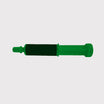 Horse Pharmacy
Horse Pharmacy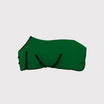 Rugs
Rugs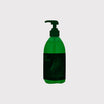 Care
Care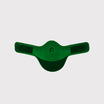 Saddle and Attachments
Saddle and Attachments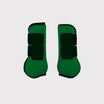 Leg Protection
Leg Protection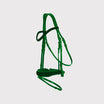 Bridles
Bridles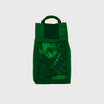 Feed
Feed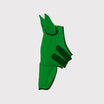 Fly Masks
Fly Masks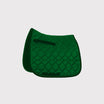 Saddle Pads
Saddle Pads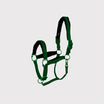 Headcollars and Ropes
Headcollars and Ropes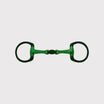 Bits
Bits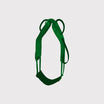 Other Disciplines
Other Disciplines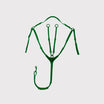 Reins and Auxiliary Reins
Reins and Auxiliary Reins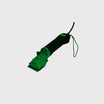 Clipping
Clipping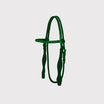 Western
Western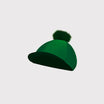 Eventing
Eventing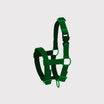 Foals
Foals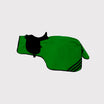 Reflection
Reflection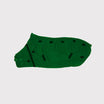 Therapy Products
Therapy Products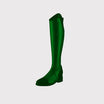 Boots and Shoes
Boots and Shoes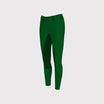 Breeches and Belts
Breeches and Belts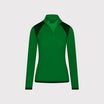 Tops
Tops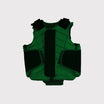 Safety
Safety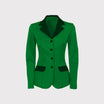 Competition
Competition Heated Clothing
Heated Clothing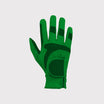 Gloves
Gloves Socks
Socks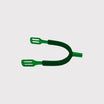 Spurs and Attachments
Spurs and Attachments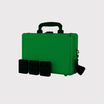 Technology
Technology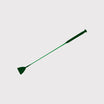 Whips
Whips Gifts
Gifts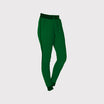 Casual Wear
Casual Wear Underwear
Underwear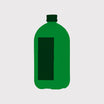 Rider Pharmacy
Rider Pharmacy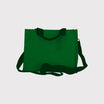 Bags
Bags Books
Books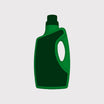 Laundry supplies
Laundry supplies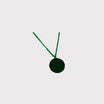 Jewelry
Jewelry Feed and Waterbowls
Feed and Waterbowls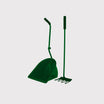 Equipment
Equipment Tack Room
Tack Room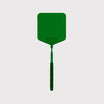 Pest Control
Pest Control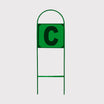 Arena
Arena Horse Toys
Horse Toys Wheelbarrows
Wheelbarrows Yard
Yard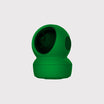 Surveillance
Surveillance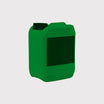 Disinfect
Disinfect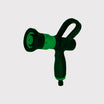 Washing Area
Washing Area Lighting
Lighting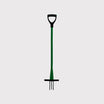 Horse Pasture
Horse Pasture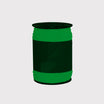 Current Conductors
Current Conductors Pole
Pole Insulators
Insulators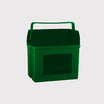 Energisers
Energisers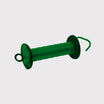 Gate Handles
Gate Handles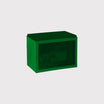 Batteries and Accumulator
Batteries and Accumulator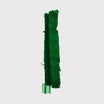 Nets
Nets Grounding
Grounding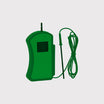 Tools
Tools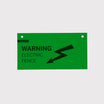 Fencing Security
Fencing Security Wolf Defense
Wolf Defense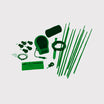 Fencing Sets
Fencing Sets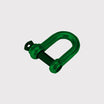 Fence locks
Fence locks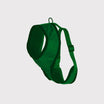 Dogs
Dogs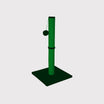 Cats
Cats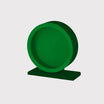 Rodents
Rodents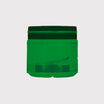 Dogs Pharmacy
Dogs Pharmacy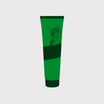 Cats Pharmacy
Cats Pharmacy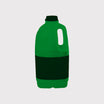 Rodents Pharmacy
Rodents Pharmacy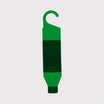 Cattle Pharmacy
Cattle Pharmacy Poultry Pharmacy
Poultry Pharmacy Veterinary Supplies
Veterinary Supplies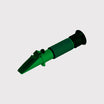 Cattle
Cattle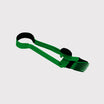 Sheep and Goats
Sheep and Goats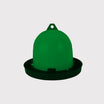 Poultry
Poultry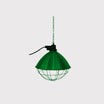 Heat Lamps
Heat Lamps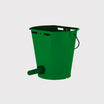 Calves
Calves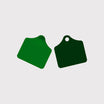 Marking
Marking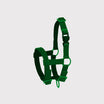 Halters
Halters